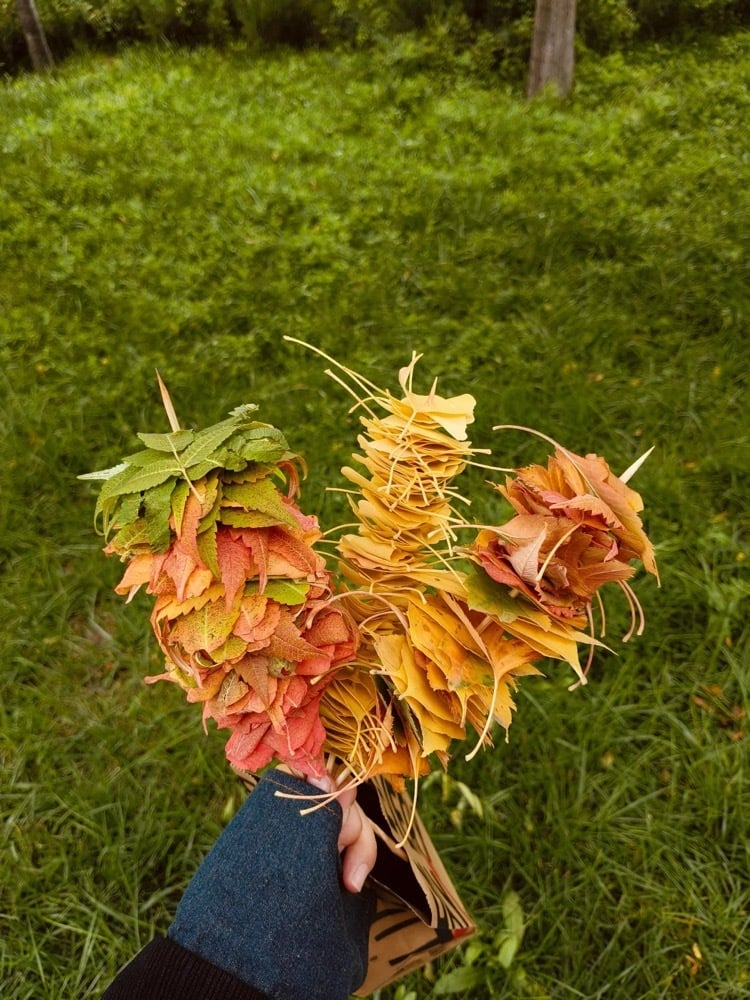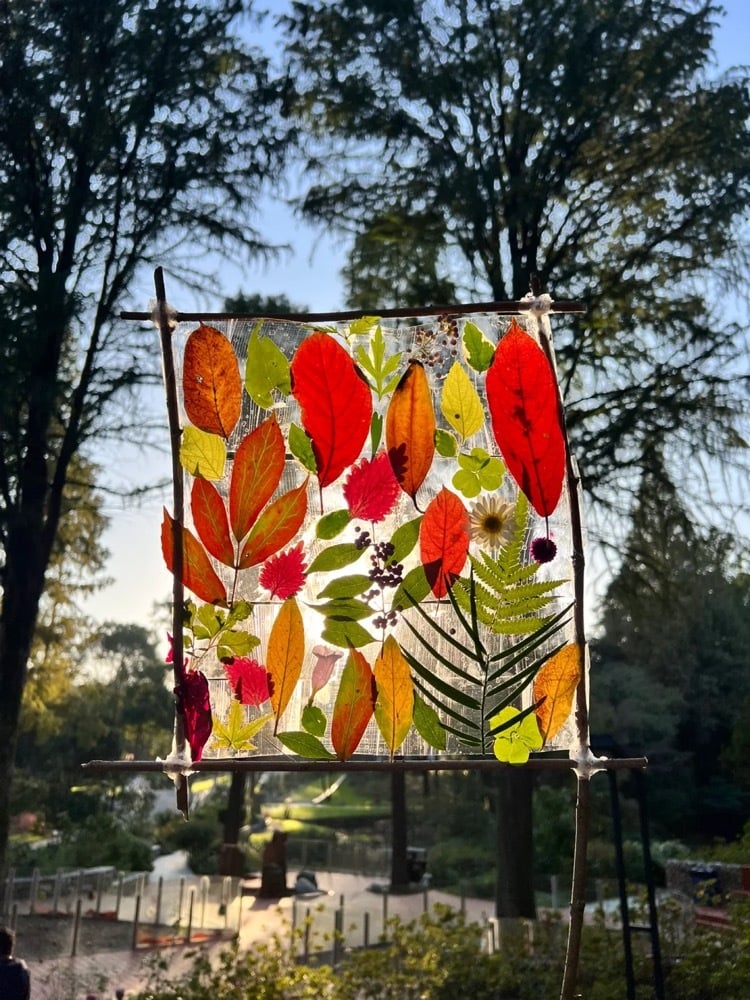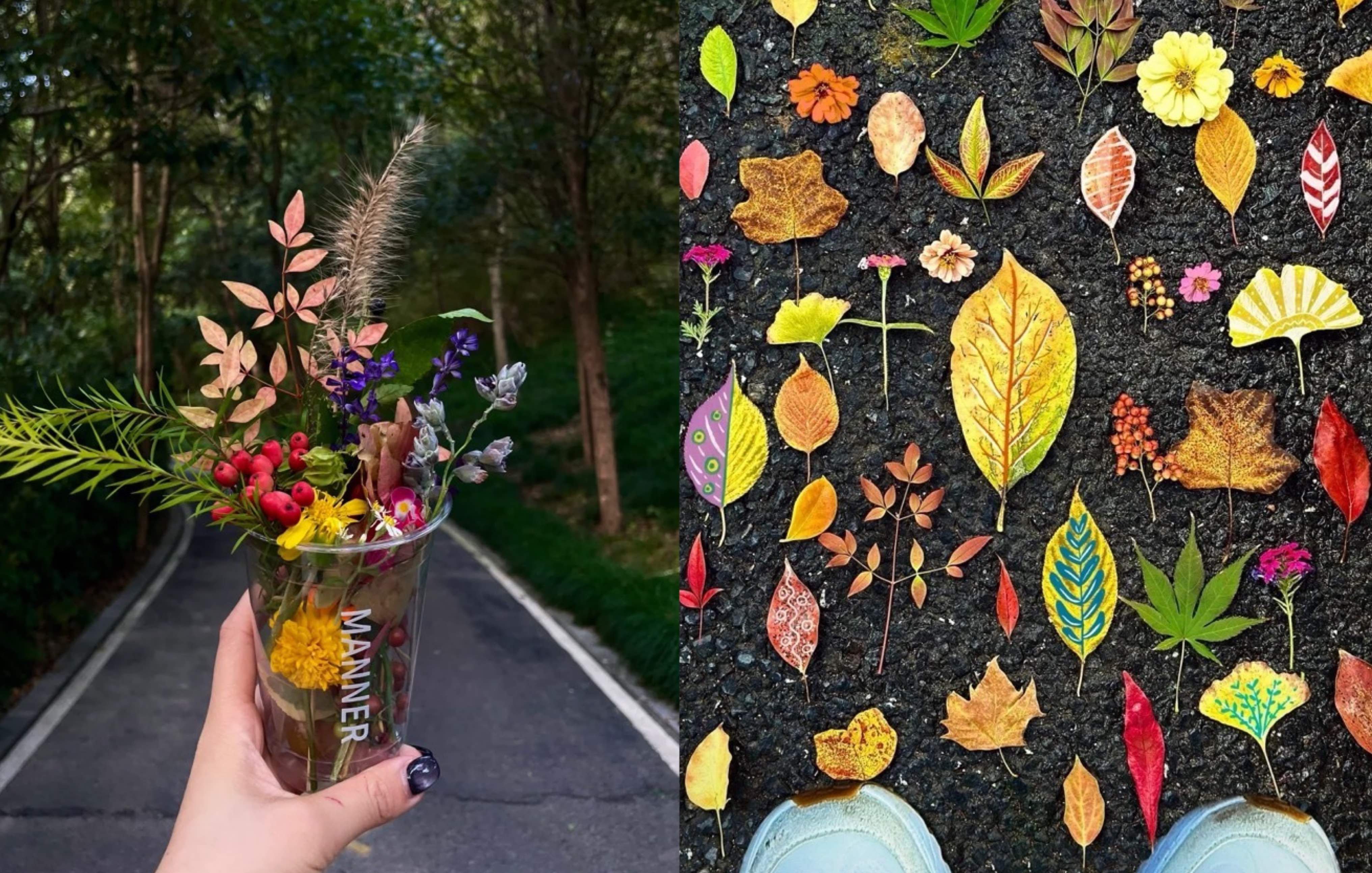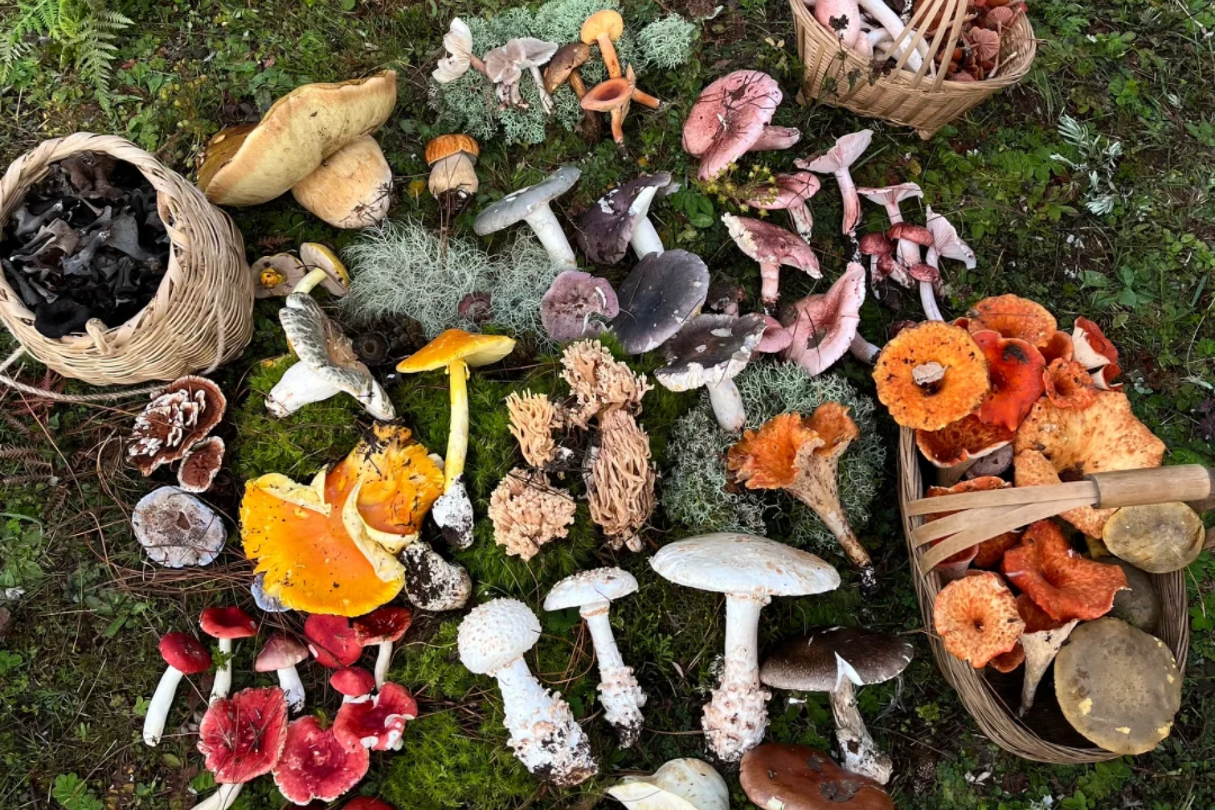People living in Chinese cities have recently fallen in love with a new outdoorsy trend: jiǎn qiū (捡秋), which directly translates to “picking up autumn.” This activity has quickly become a social media sensation, with hashtags like “Why are all the workers picking up autumn on weekends?” (打工人为何周末都去捡秋) and “Reverse tourism: picking up autumn” (有种反向旅游叫捡秋) gathering over 10 million views on Weibo and other social media platforms.
So, what exactly are people picking up? Traditionally, jiǎn qiū referred to the act of farmers collecting leftover crops from fields. But today, the phrase has taken on new meaning as an outdoor activity for city dwellers. As temperatures cool, people are heading to parks and other outdoor areas to gather fallen leaves, fruits, and other natural objects, as a way to reconnect with nature, experience the changing of seasons, and preserve memories of autumn.

While for some jiǎn qiū can be as simple as searching for dried leaves in a local park, others are taking it more seriously. Science bloggers have made long form videos to introduce common plant species people might encounter outdoors, while also spreading awareness about the potential dangers of touching or eating toxic species. Comparable to rising interest in adventure sports but significantly more relaxed, this trend encourages people to escape crowded urban areas, with families using the time outside to teach children about nature in ways they might not otherwise experience.
After collecting leaves and more, urbanites get creative with how they present their findings. Some are getting into a crafting spirit and repurposing other everyday objects like coffee cups, sticks, ropes, grass, and fabric scraps to make bouquets and frames for their collections. Meanwhile, others are taking a more scientific approach, researching plant species, categorizing finds, and saving specimens for documentation.

The popularity of jiǎn qiū has even boosted local tourism, with bureaus of culture and tourism and their affiliated institutions, for example Nanjing’s museum administration organization, promoting parks and gardens, which are often overlooked by young urbanites in favor of flashier destinations. Lifestyle platforms like Xiaohongshu are encouraging users to post their own autumn collections as well. While only time will tell if jiǎn qiū attains the popularity of “city walks,” it’s fast becoming a popular way for people to embrace nature and enjoy a breath of fresh air away from the digital world.
Banner collage via Xiaohongshu.

















